We’re sorry, this site is currently experiencing technical difficulties. Please try again in a few moments. Exception: request blocked
- Search Please fill out this field.
- Manage Your Subscription
- Give a Gift Subscription
- Newsletters
- Sweepstakes
- Travel Tips

Japan Just Made It Easier for Vaccinated Travelers to Enter — What to Know
To be considered vaccinated travelers must have at least 3 doses of the COVID-19 vaccine.
:max_bytes(150000):strip_icc():format(webp)/Stacey-Leasca-2000-631fabdcfe624115bea0ce8e25fdec96.jpg)
Beginning in September, Japan will no longer require vaccinated passengers to take a COVID-19 test before departure — however its entry protocols still remain strict.
"From Sept. 7, we will no longer require people who have been vaccinated three times to present proof that they are not infected," Japan's Prime Minister Fumio Kishida said, according to Reuters.
Additionally, all guests entering the country are required to be on supervised tours. The supervision requires mask-wearing at all times, even in crowded outdoor spaces, the Japanese Tourism Agency reads .
When Japan reopened its borders to tourists in June the country required a series of strict requirements for all visitors. Such requirements included three sets of vaccinations, private medical insurance, and instituted daily passenger limit of 20,000 including residents, Reuters also reported. All of these regulations are still in place.
Currently, U.S. citizens have very limited entry access to Japan according to the U.S. Embassy and Consulates in Japan. U.S. Citizens must apply for a single-entry visa, and will be required to fill in more documentation upon arrival. While there is no quarantine for U.S. citizens, a quarantine is possible if travelers have spent time in other countries within 14 days of entry to Japan.
In May, Japan hosted a "trial run" for tourists with small groups of triple-vaccinated travelers, mostly travel agents, from the U.S., Australia, Thailand, and Singapore, Japan Today reported at the time. All test travelers had to be part of a tour and were monitored for mask-wearing.
Of the about 50 travelers that came into Japan in May as part of the trial run, one member tested positive for COVID-19, and three others were asymptomatic, Reuters reported .
Throughout this year, other countries in Asia, including Thailand, Cambodia, and India, have opened their borders to American travelers.
Related Articles
The Ministry of Foreign Affairs website uses JavaScript. Please turn on "JavaScript" and use it.

Consular Services
Covid-19 vaccination certificates valid for entry into japan from abroad.
In applying measures based on New Border Measures (28) (May 20, 2022), COVID-19 vaccination certificates recognized as valid since July 31, 2022, in principle, fall under any of the categories 1. or 2. below.
- (1) COVID-19 vaccination certificates issued by either the Government of Japan or a local public authority/municipality in Japan (The COVID-19 Vaccination Certificate for overseas travel)
- (2) Documents to prove vaccination for COVID-19 issued by a local public authority/municipality in Japan
- (3) Records of Vaccination for COVID-19 issued by medical institutions in Japan
- (Note 1) COVID-19 vaccination certificates written in languages other than Japanese or English are considered as valid if the translation (Japanese/English) is attached and all the items are clearly identifiable.
- (Note 2) Mix-and-match vaccines are also considered as valid.
- (Note 3) In applying measures based on New Border Measures (28), COMIRNATY manufactured by Fosun Pharma / BioNTech and Covishield / COVOVAX manufactured by the Serum Institute of India are treated as identical to COMIRNATY, Intramuscular injection / Pfizer and Vaxzevria, Intramuscular injection / AstraZeneca, Nuvaxovid, Intramuscular injection / Novavax respectively.
- (Note 4) In applying measures based on New border measures (28), COMIRNATY manufactured by Fosun Pharma / BioNTech and Covishield / COVOVAX manufactured by the Serum Institute of India are treated as identical to COMIRNATY, Intramuscular injection / Pfizer and Vaxzevria, Intramuscular injection / AstraZeneca, Nuvaxovid, Intramuscular injection / Novavax respectively.
- (3) The certificate should be issued by an official body, such as a government.
Related Links
- Border enforcement measures to prevent the spread of novel coronavirus (COVID-19)
- JAPAN ・English
- Help & Contact
International
- Shopping&Life
ANA Mileage Club
- SPECIAL ASSISTANCE
- Corporate Customer
Please select the card you wish to join
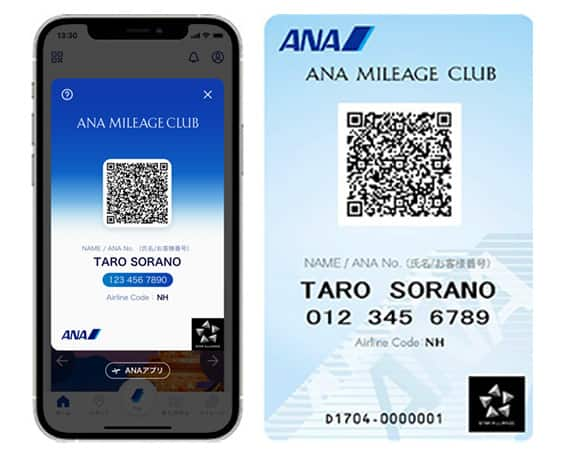
Get your digital card immediately No enrollment or annual fees ANA Mileage Club Card
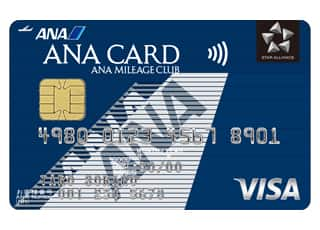
Earn more miles for your money With credit function ANA Card
What is the ANA Mileage Club?
- ANA Website
This page provides information on medical facilities offering PCR tests for customers traveling internationally from Japan. Before using one of these facilities, please confirm the details regarding the facility and the relevant country's travel conditions.
Before Leaving Japan: PCR Test for International Travel from Japan
You will find information below on our partner medical facilities inside Japan where you can obtain a PCR test certificate for international travel from Japan.

For the latest travel conditions, please check the relevant information provided by the Ministry of Foreign Affairs of Japan's overseas safety homepage, the embassy/consulate at your destination, the health authorities, etc.
This link will direct you to an external site. Some third-party programs may not run due to browser environment. The personal information protection policies and terms of use of the respective sites will apply.
Partner Clinics inside Japan
The link for each clinic will take you to an external website. Please enter into a contract directly with the relevant clinic.
If you have any questions about PCR tests, please contact the relevant clinic directly.
A negative PCR test certificate issued by one our partner clinics will not guarantee entry to another country. Please be sure to confirm the applicable entry conditions, etc. yourself.
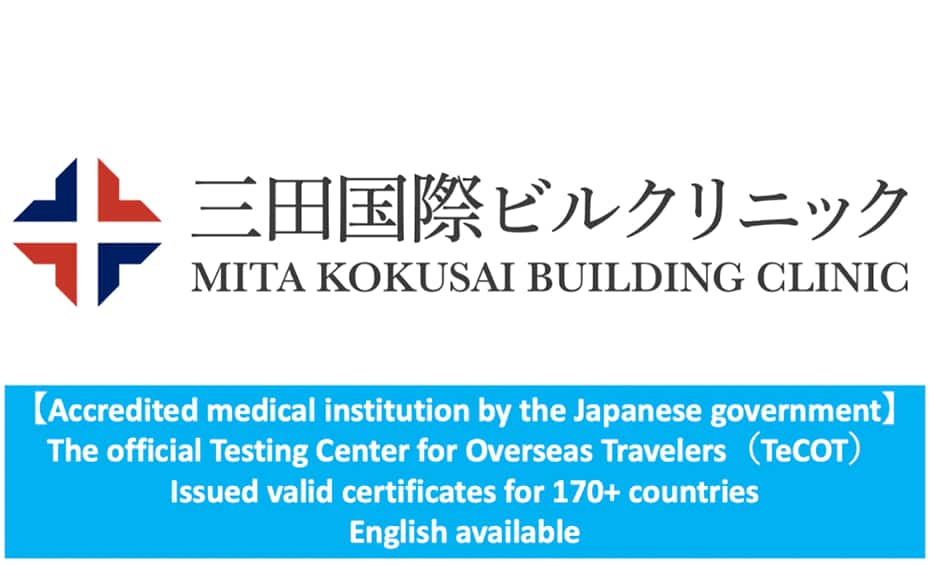
This clinic provides travel assistance to more than 170 countries worldwide and is accredited by embassies including those for Hawaii and China. It provides reliable pre-travel testing for your peace of mind, and also caters for infants, English speakers, and groups. The clinic is open on Saturdays (in the morning).
Other Useful Information
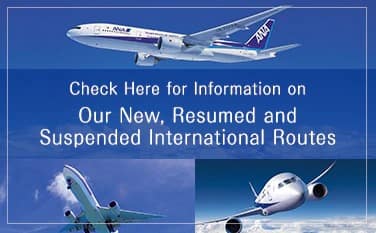
Get information on the international flight routes operated by the ANA Group.

Related Tags
- Outside Japan
- Reservations
ANA GROUP ANA GROUP
Official social media accounts.

For the 11th Consecutive Year, ANA Receives 5-Star Rating!

The Most On-Time Airline in the Asia Pacific for Five Consecutive Years!
- Privacy Policy
- Cookie Policy
- External Transmission of User Information
- Terms of Use
- System Requirement
- Web Accessibility Policy
- Conditions of Carriage for Domestic Flights
- Conditions of Carriage for International Flights
- Conditions of Carriage by Charter Flight
- ANA Mileage Club Terms and Conditions
Delete one character
Member Login
- Log In with Your AMC Membership Number
- ANA Biz Login
:Click on this icon to display the virtual keyboard.
- Before proceeding to log in, please be sure to read and accept the section on the purpose of using personal information in the ANA Privacy Policy .
About Logging In
Join ANA Mileage Club
Information for Members Logging In
- Points to note when using your AMC account.
Auto-Login with Cookies
By checking the Keep Me Logged In box on the login screen, you will not need to re-enter your membership number or password for subsequent logins.
- However, you will need to re-enter your password as a form of verification when making reservations, requesting awards, registering/revising personal information, and using other members-only functions.
Do you really want to log out?
- If you click "Log Out," you will be logged out even if you have selected "Save Login Status."
- Close all open browser windows if you want to quit your session without logging out.
ANA Biz is a business travel arrangement service.
Click here if you have forgotten your ID or password
Service Desk
Guidance of the diamond service
Guidance of the platinum service
Guidance of the bronze Service
Notices from ANA
View or update your profile, family usage.
Change address
Registration for mailed items
Change e-mail address
Change Password
Change your main card
List of your ANA Number
Reservation Information (Payment Method etc.)
Forgot your password?
Lost or damaged Card
Combining Mileage account
Change of Name
ANA Mileage Club Q&A
Award User Registration
Inheritance of Mileage
ANA Card Family Mile Registration
Edy Campaign Registration
Other(Procedures at the Service Center)
Membership Cancellation
Domestic Flights
ANA SKY COINS
Premium Point / Point on ANA /
View Mileage Account Balance
View ANA SKY COIN Balance
Choose your City and Language 都市・言語選択
Please enter your city and then choose the applicable option. 都市を入力後、選択してください
- 東京(全て)[TYO] / Tokyo(All)
- Assistance for Disabled Customers
- Help & Contact
- ANA Mileage Club Logout ANA Mileage Club Login / Join ANA Biz Logout ANA Biz Login
Security Alert May 17, 2024
Worldwide caution, update may 10, 2024, information for u.s. citizens in the middle east.
- Travel Advisories |
- Contact Us |
- MyTravelGov |
Find U.S. Embassies & Consulates
Travel.state.gov, congressional liaison, special issuance agency, u.s. passports, international travel, intercountry adoption, international parental child abduction, records and authentications, popular links, travel advisories, mytravelgov, stay connected, legal resources, legal information, info for u.s. law enforcement, replace or certify documents.
Before You Go
Learn About Your Destination
While Abroad
Emergencies
Share this page:
Travel Advisory January 8, 2024
Japan - level 1: exercise normal precautions.
Japan – Level 1: Exercise Normal Precautions
Reissued after periodic review without changes.
Exercise normal precautions in Japan.
Read the country information page for additional information on travel to Japan.
If you decide to travel to Japan:
- Enroll in the Smart Traveler Enrollment Program (STEP) to receive Alerts and make it easier to locate you in an emergency.
- Follow the Department of State on Facebook and Twitter .
- Follow Embassy Tokyo’s American Citizen Services section on Facebook and Twitter .
- Review the Country Security Report for Japan.
- Visit the CDC page for the latest Travel Health Information related to your travel.
- Prepare a contingency plan for emergency situations. Review the Traveler’s Checklist .
Embassy Messages
View Alerts and Messages Archive
Quick Facts
Duration of intended period of stay. Please note you cannot travel on a passport you have previously declared as lost or stolen even if you subsequently locate it
One page required for entry stamp
Amounts equivalent to ¥1,000,000 or above subject to declaration
Embassies and Consulates
U.S. Embassy Tokyo 1-10-5 Akasaka, Minato-ku, Tokyo 107-8420 Japan Telephone: 81-3-3224-5000 Emergency After-Hours Telephone: 81-3-3224-5000 Fax: 81-3-3224-5856 Our Navigator Assistant will guide you to the information you need.
U.S. Consulate General Osaka-Kobe 2-11-5, Nishitenma, Kita-ku, Osaka 530-8543, Japan Telephone: 81-6-6315-5900 Emergency After-Hours Telephone: 81-3-3224-5000 Fax: 81-6-6315-5914 Our Navigator Assistant will guide you to the information you need.
U.S. Consulate General Naha 2-1-1 Toyama, Urasoe City, Okinawa, Japan Telephone: 81-98-876-4211 Emergency Telephone: 81-3-3224-5000 Fax: 81-98-876-4243 Our Navigator Assistant will guide you to the information you need.
U.S. Consulate General Sapporo Kita 1-jo Nishi 28-chome, Chuo-ku, Sapporo 064-0821, Japan Telephone: 81-11-641-1115 Emergency After-Hours Telephone: 81-11-641-1115 Fax: 81-11-643-1283 Our Navigator Assistant will guide you to the information you need. All assistance at the Consulate General Sapporo is by appointment only.
U.S. Consulate Fukuoka 5-26 Ohori 2-chome, Chuo-ku, Fukuoka 810-0052, Japan Telephone: 81-92-751-9331 Emergency After-Hours Telephone: 81-3-3224-5000 Fax: 81-92-713-9222 [email protected] Our Navigator Assistant will guide you to the information you need. Routine services are provided by appointment only.
U.S. Consulate Nagoya Nagoya International Center Bldg. 6th floor, 1-47-1 Nagono, Nakamura-ku, Nagoya 450-0001, Japan Telephone: 81-52-581-4501 Emergency After-Hours Telephone: 81-3-3224-5000 Fax: 81-52-581-3190 Our Navigator Assistant will guide you to the information you need. Emergency services are provided by U.S. Consulate General Osaka-Kobe.
Destination Description
See the Department of State’s Fact Sheet on Japan for information on U.S-Japan relations.
Entry, Exit and Visa Requirements
Visit the Embassy of Japan website for the most current visa information.
There are no COVID-related entry requirements for U.S. citizens.
Entry & Exit:
- You must have a valid passport and an onward/return ticket for tourist/business "visa free" stays of up to 90 days. Your passport must be valid for the entire time you are staying in Japan.
- You cannot work on a 90-day "visa free" entry.
- "Visa free" entry status may not be changed to another visa status without departing and then re-entering Japan with the appropriate visa, such as a spouse, work, or study visa.
- Visit the Embassy of Japan website for the most current information on all visa categories.
- Japanese immigration officers may deny you entry if you appear to have no visible means of support.
- All foreign nationals are required to provide fingerprint scans and to be photographed at the port of entry. Exceptions to this requirement include diplomatic and official visa holders, minors, and individuals covered under SOFA Article IX.2. For further information about landing procedures, please visit the Immigration Bureau of Japan’s website .
- Make sure your passport is valid. Note you cannot travel on a passport you have previously declared as lost or stolen even if you subsequently locate it. Japanese authorities will likely deny you entry into Japan if you attempt to do so. If you have reported your passport lost or stolen, you must apply for a new passport before travel.
Transiting Japan:
- Ensure that your passport and visa are valid and up-to-date before you leave the United States. Passport services are not available at the airport.
- Airlines in Japan may deny you boarding for transit if you do not have the required travel documents for an onward destination in another country or if your passport does not have six months of validity remaining. For the entry requirements of the country you are traveling to, visit the State Department's Country Specific Information website.
Military/SOFA Travelers: While active-duty U.S. military personnel may enter Japan under the Status of Forces Agreement (SOFA) with proper Department of Defense (DoD) identification and travel orders, all SOFA family members, civilian employees, and contractors must have valid passports to enter Japan. Please consult the DOD Foreign Clearance Guide before leaving the United States.
See the Immigration Bureau of Japan’s website for various immigration procedures.
HIV/AIDS Restrictions: The U.S. Department of State is unaware of any HIV/AIDS entry restrictions for visitors to or foreign residents of Japan.
Find information on dual nationality , prevention of international child abduction and customs regulations on our websites.
Safety and Security
For police services in Japan, dial 110. For fire or ambulance services, dial 119.
Crime: Crime against U.S. citizens in Japan is generally low and usually involves personal disputes, theft, or vandalism. In addition:
- Robberies committed after a victim has been drugged from a spiked drink can occur, especially in nightlife districts.
- Sexual assaults are not often reported, but they do occur, and victims may be randomly targeted. Victim's assistance resources or shelters are difficult for foreigners to access.
- Hate-related violent crimes rarely occur, although some U.S. citizens have reported being the target of discrimination because of their nationality or their race.
- Pick pocketing can occur in crowded shopping areas, on trains, and at airports.
- Police reports must be filed before leaving Japan, as Japanese police will not accept reports filed from overseas.
- In instances involving credit card theft or fraud, Japanese police often provide a report number rather than a police report. You can provide this report number to your credit card company to confirm the incident with the police.
Entertainment and Nightlife Districts in Tokyo:
- Exercise caution in all entertainment and nightlife districts throughout Japan, especially Roppongi, Kabuki-cho, Shibuya, and Ikebukuro.
- Incidents involving U.S. citizens in these areas include physical and sexual assaults, drug overdoses, theft of purses, wallets, cash and credit cards at bars or clubs, and drugs slipped into drinks.
- Drink spiking at bars and entertainment venues, especially in areas such as Roppongi and Kabuki-cho, near Shinjuku, has led to robbery, physical and sexual assaults, and credit card fraud. Some victims regain consciousness in the bar or club; other victims may awaken on the street or other unfamiliar locations.
- U.S. citizens have reported being threatened with gun or knife violence in such venues so that they will pay exorbitant bar tabs or withdraw money. U.S. citizens have also reported being beaten when they have refused to pay or hand over money.
- There have been reports of U.S. citizens being forcibly taken to ATMs and robbed, or made to withdraw funds after being unable to pay exorbitant bar tabs.
- Please be aware that Roppongi, Kabuki-cho, and other entertainment and nightlife districts have also been the scenes of violence between criminal syndicates.
See the Department of State and the FBI pages for information on scams.
Police reports must be filed at the nearest police station prior to departure from Japan. The Japanese police cannot accept reports filed from overseas. Report crimes to the local police at 110 and contact the U.S. Embassy at 03-3224-5000 (011-81-3-3224-5000 from overseas). Remember that local authorities are responsible for investigating and prosecuting the crime.
See our webpage on help for U.S. victims of crime overseas .
- help you find appropriate medical care;
- assist you in reporting a crime to the police;
- contact relatives or friends with your written consent;
- explain the local criminal justice process in general terms;
- provide a list of local attorneys;
- provide information on victim’s compensation programs in the U.S. ;
- provide an emergency loan for repatriation to the United States and/or limited medical support in cases of destitution
- help you find accommodation and arrange flights home; and/or
- replace a stolen or lost passport.
Contacting Police, Fire and Ambulance Services: You can reach the police throughout Japan by dialing 110. Fire and ambulance services can be contacted by dialing 119. Note that English-speaking dispatchers may not be available. Please review advice on “Calling for Help” on our website . If you need assistance, you should be able to describe your address/location in Japanese or find someone who can do so, since few police officers speak English.
Domestic Violence: Victim's assistance resources or battered women's shelters exist in major urban areas, but are difficult for foreigners to access. These types of resources are also generally unavailable in rural areas. Investigations of sexual assault crimes are often conducted without female police officers present, and police typically ask about the victim's sexual history and previous relationships.
Tourism: The Victim's assistance resources or battered women's shelters exist in major urban areas, but are difficult for foreigners to access. These types of resources are also generally unavailable in rural areas. Investigations of sexual assault crimes are often conducted without female police officers present, and police typically ask about the victim's sexual history and previous relationships.
See our webpage for more information on insurance providers for overseas coverage.
Local Laws & Special Circumstances
Criminal Penalties: You are subject to Japanese law while you are in Japan. If you violate Japanese laws, even unknowingly, you may be arrested, imprisoned, or deported. If you are arrested in Japan, even for a minor offense , you may be held in detention without bail for several months or more during the investigation and legal proceedings.
Some offences are also prosecutable in the United States, regardless of Japanese law. For examples, see our website on crimes against minors abroad and the Department of Justice website.
The vast majority of arrests of U.S. citizens in Japan are for drug-related offenses. Japanese authorities aggressively pursue drug smugglers and users, including recreational users with sophisticated detection equipment, "sniffing" dogs, blood tests, “stop and frisk” tactics, and other methods. Penalties for possessing, using, or trafficking a drug that is illegal in Japan are severe, and convicted offenders can expect long jail sentences and fines. Please note that some drugs which may be legal in certain jurisdictions outside of Japan, including marijuana and synthetic drugs, remain illegal in Japan. This also applies to certain prescription drugs that doctors in the United States may prescribe. Japanese law makes no distinction between medical and recreational marijuana; therefore, having a prescription for medical marijuana will not help you avoid arrest or prosecution. Even possession of a small amount of marijuana for personal medical or recreational use can result in a long jail sentence and fine. Japanese customs officials carefully screen incoming packages, and individuals who are mailed drugs can be arrested and prosecuted as drug traffickers.
Confiscation of Prescription Drugs and Other Medication: It is important to note that some medications that are routinely prescribed in the United States, including Adderall and marijuana, are strictly prohibited in Japan. The Japanese government decides which medications may be imported legally into Japan. The Embassy and Consulates of Japan in the United States have limited information available and do not have a comprehensive list of specific medications or ingredients. Please see more information on importing medicines into Japan.
You must carry your U.S. passport or Japanese Residence Card (Zairyu Kado) with you at all times. In Japan, you may be taken in for questioning if you do not have your passport or Japanese residence card to show your identity and status in Japan (e.g., as a visitor, student, worker, or permanent resident).
It is illegal to work in Japan while in tourist or visa-waiver status. Overstaying your visa or working illegally may lead to fines of several thousands of dollars, and in some cases, re-entry bans as long as 10 years, or indefinitely for drug offenders. For additional information, please see Japan’s Immigration Control and Refugee Recognition Act and contact the Japanese Embassy or nearest Japanese Consulate in the United States for more information.
Driving under the influence of alcohol could also land you immediately in jail. The blood-alcohol limit in Japan is 0.03%. Punishments can be up to 10,000 USD in fines and up to five years in prison.
Possession of a gun or ammunition is a crime in Japan. Carrying a knife with a locking blade, or a folding blade that is longer than 5.5 cm (a little more than two inches), is illegal in Japan. U.S. citizens and U.S. military personnel have been arrested and detained for more than 10 days for carrying pocket knives that are legal in the United States but illegal in Japan. The possession of lock-picking tools is illegal in Japan.
Establishing a Business : Individuals establishing a business or practicing a profession that requires additional permits or licensing should seek information from the competent local authorities, prior to practicing or operating a business.
A list of English-speaking lawyers located throughout Japan is available on our website .
Arrest Notification : If you are arrested or detained, ask police or prison officials to notify the U.S. Embassy immediately. See the Department of State’s webpage and the Embassy’s website for additional information.
Counterfeit and Pirated Goods: Although counterfeit and pirated goods are prevalent in many countries, they may still be illegal according to local laws. You may also pay fines or have to give them up if you bring them back to the United States. See the U.S. Department of Justice’s website for more information .
Faith-Based Travelers: See our following webpages for details:
- Faith-Based Travel Information
- International Religious Freedom Report – see country reports
- Human Rights Report – see country reports
- Hajj Fact Sheet for Travelers
- Best Practices for Volunteering Abroad
LGBTQI+ Travelers: There are no legal restrictions on same-sex sexual relations or the organization of LGBTI+ events in Japan.
Laws governing rape, sexual commerce, and other activity involving sexual relations do not apply to same-sex sexual activity. This leads to lower penalties for perpetrators of same-sex rape and sexual assault and greater legal ambiguity surrounding same-sex prostitution.
See our LGBTQI+ Travel Information page and section 6 of our Human Rights report for further details.
Travelers with Disabilities: The law in Japan prohibits discrimination against persons with disabilities. Japanese disability laws require the public sector to provide reasonable accommodations and the private sector to make best efforts in employment, education, access to health care, or the provision of other services; however, there are no penalties for noncompliance. Social acceptance of persons with disabilities in public is not as prevalent as in the United States.
Although Japan’s accessibility laws mandate that new construction projects for public use include provisions for persons with disabilities, older buildings are not likely to have been retrofitted for accessibility. At major train stations, airports, and hotels, travelers with disabilities should encounter few accessibility problems. Note that many smaller stations are inaccessible to those who cannot climb stairs. Information on travel in Japan for travelers with disabilities is available at Accessible Japan .
Travelers with disabilities can learn more about resources available in country from the Japan National Tourism Organization’s traveling with a disability page .
Students: See our Students Abroad page and FBI travel tips .
Women Travelers: See our travel tips for Women Travelers .
Conditions at Prisons and Detention Facilities: Japanese prisons and detention facilities maintain internal order through a regime of very strict discipline. U.S. citizen prisoners often complain of stark, austere living conditions and psychological isolation. Heating in winter can be inadequate in some facilities, food portions can be significantly smaller than what many may be accustomed to, and access to specialized medical care, particularly mental health care, at detention facilities and prisons is sometimes limited. Additional information on arrests in Japan is available on our embassy website.
Customs Regulations: Please contact the Japanese Embassy or nearest Japanese consulate in the United States, or visit the Japanese Customs website for specific information regarding import restrictions and customs requirements.
Japanese customs authorities encourage the use of an Admission Temporaire/Temporary Admission (ATA) Carnet in order to temporarily import professional equipment, commercial samples, and/or goods for exhibitions and trade fairs into Japan. For additional information, please call (212) 354-4480, or email the U.S. CIB for details.
Pets: The Japanese Animal Quarantine Service (AQS) sets procedures for importing pets. At a minimum, the process will take seven to eight months, though the process can take up to a year before a pet may enter Japan. Advance planning is critical. You can find more information about importing a pet into Japan or information about exporting a pet from Japan on our Embassy website.
Employment Issues: U.S. citizens should not come to Japan to work without having the proper employment visa arranged ahead of time. Teaching English, even privately, and serving as hosts/hostesses are both considered "work" in Japan and are illegal without the proper visa.
Some U.S.-based employment agencies and Japanese employers do not fully or correctly represent the true nature of employment terms and conditions. A minimum requirement for effectively seeking the protection of Japanese labor law is a written and signed work contract. If there is no signed contract, Japanese authorities are not able to act on behalf of foreign workers. If you are coming to Japan to work, carefully review your contract and the history and reputation of your Japanese employer before traveling to Japan. Complaints against U.S.-based employment agencies or recruiters may be directed to the Better Business Bureau or the Office of the Attorney General in the relevant state(s).
Disaster Preparedness : Japan is prone to natural disasters, including earthquakes, typhoons, tsunamis, and landslides. See the Embassy’s webpage for recommendations and steps you can take to prepare for an emergency. The Japan Tourism Organization’s Safety Tips app and NHK World app provide Japanese government emergency “J-Alerts” to your cell phone in English through push notifications. “J-Alerts” can provide early warning emergency alerts on earthquakes predicted in a specific area, sometimes seconds before an earthquake hits.
Radiation: Fukushima Daiichi Nuclear Power Plant : The Government of Japan continues to closely monitor the conditions at and around the Fukushima Daiichi Nuclear Power Plant. You should comply with all travel restrictions and cautions put into place by the Government of Japan for areas surrounding the plant. For more information, contact the Japan Nuclear Regulation Authority .
For police service in Japan, dial 110. For fire or ambulance, dial 119.
Ambulance services are widely available but receiving hospitals may decline to accept inbound patients unless they can provide proof of funds to pay for services.
COVID-19 Testing:
- Travelers should contact Japanese local health providers to determine the location of testing facilities within Japan. A non-comprehensive list of some COVID-19 testing facilities can be found here on the Embassy website.
COVID-19 Vaccines:
- The COVID-19 vaccine is available for U.S. citizens to receive in Japan.
- Review the Government of Japan’s English language website on COVID-19 vaccinations in Japan.
- Visit the FDA's website to learn more about FDA-approved vaccines in the United States.
The Department of State does not pay medical bills. Be aware that U.S. Medicare/Medicaid does not apply overseas. Most hospitals and doctors overseas do not accept U.S. health insurance.
Medical Insurance: Make sure your health insurance plan provides coverage overseas. Some care providers in Japan only accept cash payments. See our webpage for more information on insurance providers for overseas coverage. Visit the U.S. Centers for Disease Control and Prevention for more information on type of insurance you should consider before you travel overseas.
We strongly recommend supplemental insurance to cover medical evacuation.
If traveling with prescription medication, check with the government of Japan’s Ministry of Health website to ensure the medication is legal in Japan; possession, use, or importation of a prescription drug that is illegal in Japan may result in arrest and criminal prosecution. Always carry your prescription medication in original packaging with your doctor’s prescription. U.S. prescriptions are not honored in Japan, so if you need ongoing prescription medicine, you should arrive with a sufficient supply for your stay in Japan or enough until you are able to see a local care provider.
Vaccinations: Be up-to-date on all vaccinations recommended by the U.S. Centers for Disease Control and Prevention.
Further health information:
- World Health Organization
- U.S. Centers for Disease Control and Prevention (CDC)
Japan has a national health insurance system which is available only to those foreigners with long-term visas for Japan. National health insurance does not pay for medical evacuation. Medical caregivers in Japan may require payment in full at the time of treatment or concrete proof of ability to pay before they will treat a foreigner who is not a member of the national health insurance plan.
U.S.-style and standard psychological and psychiatric care can be difficult to locate outside of major urban centers in Japan and generally is not available outside of Japan's major cities. Extended psychiatric care can be very difficult to obtain.
Air Quality: Visit AirNow Department of State for information on air quality at U.S. Embassies and Consulates.
Travel and Transportation
Road Conditions and Safety : Driving in Japan can be complicated and expensive. Traffic moves on the left side of the road. Those who cannot read the language will have trouble understanding road signs. Highway tolls can be very high, and city traffic is often very congested. A 20-mile trip in the Tokyo area may take two hours. There is virtually no legal roadside or curbside parking; however, traffic is commonly blocked or partially blocked by those illegally parked curbside. In mountainous areas, roads are often closed during the winter, and cars should be equipped with tire chains. Roads in Japan are much narrower than those in the United States.
Traffic Laws : Japanese law provides that all drivers in Japan are held liable in the event of an accident, and assesses fault in an accident on all parties. Japanese compulsory insurance (JCI) is mandatory for all automobile owners and drivers in Japan. Most short-term visitors choose not to drive in Japan. Turning right or left on red lights is not permitted in Japan, and all passengers are required to fasten their seat belts.
Japan has a national 0.03 percent blood-alcohol-level standard for driving, and drivers stopped for driving under the influence of intoxicants will have their licenses confiscated. If you are found guilty of driving under the influence, speeding, or blatantly careless driving resulting in injury, you are subject to up to 15 years in prison.
See our Road Safety page for more information. The National Police Agency (NPA) oversees the administration and enforcement of traffic laws in Japan. You can find further information in English on the NPA English website . Information about roadside assistance, rules of the road, and obtaining a Japanese driver's license is available in English from the Japan Automobile Federation (JAF) web site . See the Japan National Tourism Organization’s website for car rental and driving in Japan.
Emergency Assistance : For roadside assistance, please contact the Japan Automobile Federation (JAF) at 03-5730-0111 in Tokyo, 072-645-0111 in Osaka, 011-857-8139 in Sapporo, 092-841-5000 in Fukuoka, or 098-877-9163 in Okinawa.
International Driving Permits (IDPs): An international driving permit (IDP) issued in the United States by the American Automobile Association (AAA) or the American Automobile Touring Alliance (AATA) is required of short-term visitors who drive in Japan. You must obtain an IDP issued in your country of residence prior to arriving in Japan. The U.S. Embassy andU.S. consulates do not issue IDPs. IDPs issued via the Internet and/or by other organizations are not valid in Japan.
Foreign residents in Japan who use an IDP may be fined or arrested. In practice, the term “resident” involves more than simply visa status or length of stay in Japan and is determined by the police. In short, a driver license from country outside Japan is not a substitute for a valid Japanese license for foreign residents. See the U.S. Embassy’s website for more information on driving in Japan.
Aviation Safety Oversight : The U.S. Federal Aviation Administration (FAA) has assessed the government of Japan’s Civil Aviation Authority as being in compliance with International Civil Aviation Organization (ICAO) aviation safety standards for oversight of Japan’s air carrier operations. Further information may be found on the FAA's safety assessment page .
Maritime Travel : Mariners planning travel to Japan should also check for U.S. maritime advisories and alerts in the Alerts section of the Embassy’s messages. Information may also be posted to the U.S. Coast Guard homeport website , and the National Geospatial-Intelligence Agency (NGA) broadcast warnings website portal select “broadcast warnings.”
For additional travel information
- Enroll in the Smart Traveler Enrollment Program (STEP) to receive security messages and make it easier to locate you in an emergency.
- Call us in Washington, D.C. at 1-888-407-4747 (toll-free in the United States and Canada) or 1-202-501-4444 (from all other countries) from 8:00 a.m. to 8:00 p.m., Eastern Standard Time, Monday through Friday (except U.S. federal holidays).
- See the State Department’s travel website for the Worldwide Caution and Travel Advisories .
- Follow us on Twitter and Facebook .
- See traveling safely abroad for useful travel tips.
Review information about International Parental Child Abduction in Japan . For additional IPCA-related information, please see the International Child Abduction Prevention and Return Act ( ICAPRA ) report.
Travel Advisory Levels
Assistance for u.s. citizens, learn about your destination, enroll in step.

Subscribe to get up-to-date safety and security information and help us reach you in an emergency abroad.
Recommended Web Browsers: Microsoft Edge or Google Chrome.
Make two copies of all of your travel documents in case of emergency, and leave one with a trusted friend or relative.
Afghanistan
Antigua and Barbuda
Bonaire, Sint Eustatius, and Saba
Bosnia and Herzegovina
British Virgin Islands
Burkina Faso
Burma (Myanmar)
Cayman Islands
Central African Republic
Cote d Ivoire
Curaçao
Czech Republic
Democratic Republic of the Congo
Dominican Republic
El Salvador
Equatorial Guinea
Eswatini (Swaziland)
Falkland Islands
France (includes Monaco)
French Guiana
French Polynesia
French West Indies
Guadeloupe, Martinique, Saint Martin, and Saint Barthélemy (French West Indies)
Guinea-Bissau
Isle of Man
Israel, The West Bank and Gaza
Liechtenstein
Marshall Islands
Netherlands
New Caledonia
New Zealand
North Korea (Democratic People's Republic of Korea)
Papua New Guinea
Philippines
Republic of North Macedonia
Republic of the Congo
Saint Kitts and Nevis
Saint Lucia
Saint Vincent and the Grenadines
Sao Tome and Principe
Saudi Arabia
Sierra Leone
Sint Maarten
Solomon Islands
South Africa
South Korea
South Sudan
Switzerland
The Bahamas
Timor-Leste
Trinidad and Tobago
Turkmenistan
Turks and Caicos Islands
United Arab Emirates
United Kingdom
Vatican City (Holy See)
External Link
You are about to leave travel.state.gov for an external website that is not maintained by the U.S. Department of State.
Links to external websites are provided as a convenience and should not be construed as an endorsement by the U.S. Department of State of the views or products contained therein. If you wish to remain on travel.state.gov, click the "cancel" message.
You are about to visit:
- Subscribe Digital Print

- Tokyo governor race
- Kishida under fire
- Weakening yen
- Latest News
- Deep Dive Podcast
Today's print edition
Home Delivery
- Crime & Legal
- Science & Health
- More sports
- CLIMATE CHANGE
- SUSTAINABILITY
- EARTH SCIENCE
- Food & Drink
- Style & Design
- TV & Streaming
- Entertainment news
Japan Traveler View
Travel health notices, vaccines and medicines, non-vaccine-preventable diseases, stay healthy and safe.
- Packing List
After Your Trip
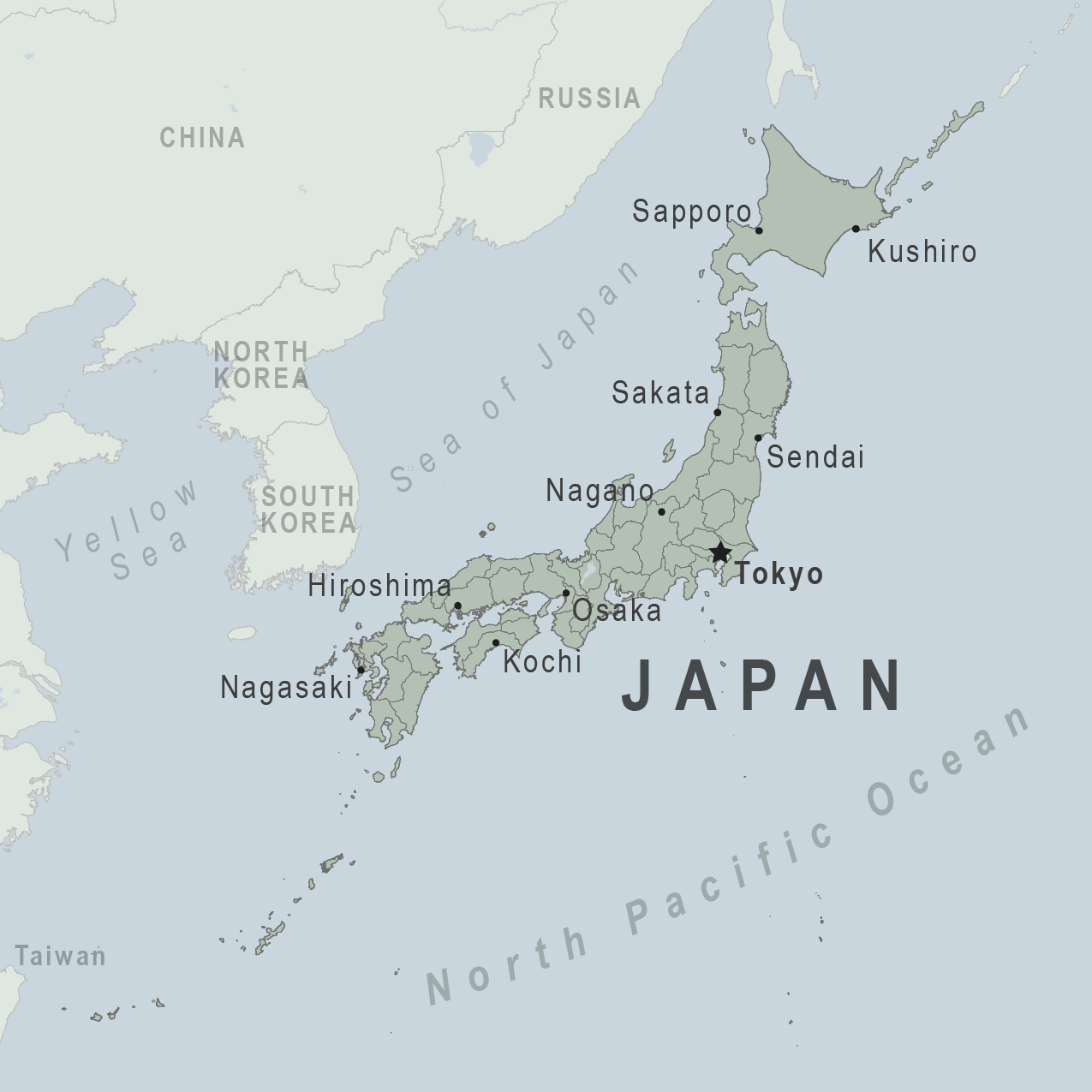
There are no notices currently in effect for Japan.
⇧ Top
Check the vaccines and medicines list and visit your doctor at least a month before your trip to get vaccines or medicines you may need. If you or your doctor need help finding a location that provides certain vaccines or medicines, visit the Find a Clinic page.
Routine vaccines
Recommendations.
Make sure you are up-to-date on all routine vaccines before every trip. Some of these vaccines include
- Chickenpox (Varicella)
- Diphtheria-Tetanus-Pertussis
- Flu (influenza)
- Measles-Mumps-Rubella (MMR)
Immunization schedules
All eligible travelers should be up to date with their COVID-19 vaccines. Please see Your COVID-19 Vaccination for more information.
COVID-19 vaccine
Hepatitis A
Consider hepatitis A vaccination for most travelers. It is recommended for travelers who will be doing higher risk activities, such as visiting smaller cities, villages, or rural areas where a traveler might get infected through food or water. It is recommended for travelers who plan on eating street food.
Hepatitis A - CDC Yellow Book
Dosing info - Hep A
Hepatitis B
Recommended for unvaccinated travelers younger than 60 years old traveling to Japan. Unvaccinated travelers 60 years and older may get vaccinated before traveling to Japan.
Hepatitis B - CDC Yellow Book
Dosing info - Hep B
Japanese Encephalitis
Recommended for travelers who
- Are moving to an area with Japanese encephalitis to live
- Spend long periods of time, such as a month or more, in areas with Japanese encephalitis
- Frequently travel to areas with Japanese encephalitis
Consider vaccination for travelers
- Spending less than a month in areas with Japanese encephalitis but will be doing activities that increase risk of infection, such as visiting rural areas, hiking or camping, or staying in places without air conditioning, screens, or bed nets
- Going to areas with Japanese encephalitis who are uncertain of their activities or how long they will be there
Not recommended for travelers planning short-term travel to urban areas or travel to areas with no clear Japanese encephalitis season.
Japanese encephalitis - CDC Yellow Book
Japanese Encephalitis Vaccine for US Children
Cases of measles are on the rise worldwide. Travelers are at risk of measles if they have not been fully vaccinated at least two weeks prior to departure, or have not had measles in the past, and travel internationally to areas where measles is spreading.
All international travelers should be fully vaccinated against measles with the measles-mumps-rubella (MMR) vaccine, including an early dose for infants 6–11 months, according to CDC’s measles vaccination recommendations for international travel .
Measles (Rubeola) - CDC Yellow Book
Dogs infected with rabies are not commonly found in Japan.
If rabies exposures occur while in Japan, rabies vaccines are typically available throughout most of the country.
Rabies pre-exposure vaccination considerations include whether travelers 1) will be performing occupational or recreational activities that increase risk for exposure to potentially rabid animals and 2) might have difficulty getting prompt access to safe post-exposure prophylaxis.
Please consult with a healthcare provider to determine whether you should receive pre-exposure vaccination before travel.
For more information, see country rabies status assessments .
Rabies - CDC Yellow Book
Tick-borne Encephalitis
Avoid bug bites
Learn more about tick-borne encephalitis at your destination .
Tick-borne Encephalitis - CDC Yellow Book
Avoid contaminated water
Leptospirosis
How most people get sick (most common modes of transmission)
- Touching urine or other body fluids from an animal infected with leptospirosis
- Swimming or wading in urine-contaminated fresh water, or contact with urine-contaminated mud
- Drinking water or eating food contaminated with animal urine
- Avoid contaminated water and soil
- Avoid floodwater
Clinical Guidance
Airborne & droplet, avian/bird flu.
- Being around, touching, or working with infected poultry, such as visiting poultry farms or live-animal markets
- Avoid domestic and wild poultry
- Breathing in air or accidentally eating food contaminated with the urine, droppings, or saliva of infected rodents
- Bite from an infected rodent
- Less commonly, being around someone sick with hantavirus (only occurs with Andes virus)
- Avoid rodents and areas where they live
- Avoid sick people
Tuberculosis (TB)
- Breathe in TB bacteria that is in the air from an infected and contagious person coughing, speaking, or singing.
Learn actions you can take to stay healthy and safe on your trip. Vaccines cannot protect you from many diseases in Japan, so your behaviors are important.
Eat and drink safely
Food and water standards around the world vary based on the destination. Standards may also differ within a country and risk may change depending on activity type (e.g., hiking versus business trip). You can learn more about safe food and drink choices when traveling by accessing the resources below.
- Choose Safe Food and Drinks When Traveling
- Water Treatment Options When Hiking, Camping or Traveling
- Global Water, Sanitation and Hygiene | Healthy Water
- Avoid Contaminated Water During Travel
You can also visit the Department of State Country Information Pages for additional information about food and water safety.
Prevent bug bites
Although Japan is an industrialized country, bug bites here can still spread diseases. Just as you would in the United States, try to avoid bug bites while spending time outside or in wooded areas.
What can I do to prevent bug bites?
- Cover exposed skin by wearing long-sleeved shirts, long pants, and hats.
- Use an appropriate insect repellent (see below).
- Consider using permethrin-treated clothing and gear if spending a lot of time outside. Do not use permethrin directly on skin.
What type of insect repellent should I use?
- FOR PROTECTION AGAINST TICKS AND MOSQUITOES: Use a repellent that contains 20% or more DEET for protection that lasts up to several hours.
- Picaridin (also known as KBR 3023, Bayrepel, and icaridin)
- Oil of lemon eucalyptus (OLE) or para-menthane-diol (PMD)
- 2-undecanone
- Always use insect repellent as directed.
What should I do if I am bitten by bugs?
- Avoid scratching bug bites, and apply hydrocortisone cream or calamine lotion to reduce the itching.
- Check your entire body for ticks after outdoor activity. Be sure to remove ticks properly.
What can I do to avoid bed bugs?
Although bed bugs do not carry disease, they are an annoyance. See our information page about avoiding bug bites for some easy tips to avoid them. For more information on bed bugs, see Bed Bugs .
For more detailed information on avoiding bug bites, see Avoid Bug Bites .
Stay safe outdoors
If your travel plans in Japan include outdoor activities, take these steps to stay safe and healthy during your trip:
- Stay alert to changing weather conditions and adjust your plans if conditions become unsafe.
- Prepare for activities by wearing the right clothes and packing protective items, such as bug spray, sunscreen, and a basic first aid kit.
- Consider learning basic first aid and CPR before travel. Bring a travel health kit with items appropriate for your activities.
- If you are outside for many hours in the heat, eat salty snacks and drink water to stay hydrated and replace salt lost through sweating.
- Protect yourself from UV radiation : use sunscreen with an SPF of at least 15, wear protective clothing, and seek shade during the hottest time of day (10 a.m.–4 p.m.).
- Be especially careful during summer months and at high elevation. Because sunlight reflects off snow, sand, and water, sun exposure may be increased during activities like skiing, swimming, and sailing.
- Very cold temperatures can be dangerous. Dress in layers and cover heads, hands, and feet properly if you are visiting a cold location.
Stay safe around water
- Swim only in designated swimming areas. Obey lifeguards and warning flags on beaches.
- Do not dive into shallow water.
- Avoid swallowing water when swimming. Untreated water can carry germs that make you sick.
- Practice safe boating—follow all boating safety laws, do not drink alcohol if you are driving a boat, and always wear a life jacket.

Keep away from animals
Most animals avoid people, but they may attack if they feel threatened, are protecting their young or territory, or if they are injured or ill. Animal bites and scratches can lead to serious diseases such as rabies.
Follow these tips to protect yourself:
- Do not touch or feed any animals you do not know.
- Do not allow animals to lick open wounds, and do not get animal saliva in your eyes or mouth.
- Avoid rodents and their urine and feces.
- Traveling pets should be supervised closely and not allowed to come in contact with local animals.
- If you wake in a room with a bat, seek medical care immediately. Bat bites may be hard to see.
All animals can pose a threat, but be extra careful around dogs, bats, monkeys, sea animals such as jellyfish, and snakes. If you are bitten or scratched by an animal, immediately:
- Wash the wound with soap and clean water.
- Go to a doctor right away.
- Tell your doctor about your injury when you get back to the United States.
Reduce your exposure to germs
Follow these tips to avoid getting sick or spreading illness to others while traveling:
- Wash your hands often, especially before eating.
- If soap and water aren’t available, clean hands with hand sanitizer (containing at least 60% alcohol).
- Don’t touch your eyes, nose, or mouth. If you need to touch your face, make sure your hands are clean.
- Cover your mouth and nose with a tissue or your sleeve (not your hands) when coughing or sneezing.
- Try to avoid contact with people who are sick.
- If you are sick, stay home or in your hotel room, unless you need medical care.
Avoid sharing body fluids
Diseases can be spread through body fluids, such as saliva, blood, vomit, and semen.
Protect yourself:
- Use latex condoms correctly.
- Do not inject drugs.
- Limit alcohol consumption. People take more risks when intoxicated.
- Do not share needles or any devices that can break the skin. That includes needles for tattoos, piercings, and acupuncture.
- If you receive medical or dental care, make sure the equipment is disinfected or sanitized.
Know how to get medical care while traveling
Plan for how you will get health care during your trip, should the need arise:
- Carry a list of local doctors and hospitals at your destination.
- Review your health insurance plan to determine what medical services it would cover during your trip. Consider purchasing travel health and medical evacuation insurance for things your regular insurance will not cover.
- Carry a card that identifies, in the local language, your blood type, chronic conditions or serious allergies, and the generic names of any medicines you take.
- Bring copies of your prescriptions for medicine and for eye glasses and contact lenses.
- Some prescription drugs may be illegal in other countries. Call Japan’s embassy to verify that all of your prescription(s) are legal to bring with you.
- Bring all the medicines (including over-the-counter medicines) you think you might need during your trip, including extra in case of travel delays. Ask your doctor to help you get prescriptions filled early if you need to.
Many foreign hospitals and clinics are accredited by the Joint Commission International. A list of accredited facilities is available at their website ( www.jointcommissioninternational.org ).
Select safe transportation
Motor vehicle crashes are the #1 killer of healthy US citizens in foreign countries.
Be smart when you are traveling on foot.
- Use sidewalks and marked crosswalks.
- Pay attention to the traffic around you, especially in crowded areas.
- Remember, people on foot do not always have the right of way in other countries.
Riding/Driving
Choose a safe vehicle.
- Choose official taxis or public transportation, such as trains and buses.
- Make sure there are seatbelts.
- Avoid overcrowded, overloaded, top-heavy buses and minivans.
- Avoid riding on motorcycles or motorbikes, especially motorbike taxis. (Many crashes are caused by inexperienced motorbike drivers.)
- Choose newer vehicles—they may have more safety features, such as airbags, and be more reliable.
- Choose larger vehicles, which may provide more protection in crashes.
Think about the driver.
- Do not drive after drinking alcohol or ride with someone who has been drinking.
- Consider hiring a licensed, trained driver familiar with the area.
- Arrange payment before departing.
Follow basic safety tips.
- Wear a seatbelt at all times.
- Sit in the back seat of cars and taxis.
- When on motorbikes or bicycles, always wear a helmet. (Bring a helmet from home, if needed.)
- Do not use a cell phone or text while driving (illegal in many countries).
- Travel during daylight hours only, especially in rural areas.
- If you choose to drive a vehicle in Japan, learn the local traffic laws and have the proper paperwork.
- Get any driving permits and insurance you may need. Get an International Driving Permit (IDP). Carry the IDP and a US-issued driver's license at all times.
- Check with your auto insurance policy's international coverage, and get more coverage if needed. Make sure you have liability insurance.
- Avoid using local, unscheduled aircraft.
- If possible, fly on larger planes (more than 30 seats); larger airplanes are more likely to have regular safety inspections.
- Try to schedule flights during daylight hours and in good weather.
Helpful Resources
Road Safety Overseas (Information from the US Department of State): Includes tips on driving in other countries, International Driving Permits, auto insurance, and other resources.
The Association for International Road Travel has country-specific Road Travel Reports available for most countries for a minimal fee.
Traffic flows on the left side of the road in Japan.
- Always pay close attention to the flow of traffic, especially when crossing the street.
- LOOK RIGHT for approaching traffic.
Maintain personal security
Use the same common sense traveling overseas that you would at home, and always stay alert and aware of your surroundings.
Before you leave
- Research your destination(s), including local laws, customs, and culture.
- Monitor travel advisories and alerts and read travel tips from the US Department of State.
- Enroll in the Smart Traveler Enrollment Program (STEP) .
- Leave a copy of your itinerary, contact information, credit cards, and passport with someone at home.
- Pack as light as possible, and leave at home any item you could not replace.
While at your destination(s)
- Carry contact information for the nearest US embassy or consulate .
- Carry a photocopy of your passport and entry stamp; leave the actual passport securely in your hotel.
- Follow all local laws and social customs.
- Do not wear expensive clothing or jewelry.
- Always keep hotel doors locked, and store valuables in secure areas.
- If possible, choose hotel rooms between the 2nd and 6th floors.
Healthy Travel Packing List
Use the Healthy Travel Packing List for Japan for a list of health-related items to consider packing for your trip. Talk to your doctor about which items are most important for you.
Why does CDC recommend packing these health-related items?
It’s best to be prepared to prevent and treat common illnesses and injuries. Some supplies and medicines may be difficult to find at your destination, may have different names, or may have different ingredients than what you normally use.
If you are not feeling well after your trip, you may need to see a doctor. If you need help finding a travel medicine specialist, see Find a Clinic . Be sure to tell your doctor about your travel, including where you went and what you did on your trip. Also tell your doctor if you were bitten or scratched by an animal while traveling.
For more information on what to do if you are sick after your trip, see Getting Sick after Travel .
Map Disclaimer - The boundaries and names shown and the designations used on maps do not imply the expression of any opinion whatsoever on the part of the Centers for Disease Control and Prevention concerning the legal status of any country, territory, city or area or of its authorities, or concerning the delimitation of its frontiers or boundaries. Approximate border lines for which there may not yet be full agreement are generally marked.
Other Destinations
If you need help finding travel information:
Message & data rates may apply. CDC Privacy Policy
File Formats Help:
- Adobe PDF file
- Microsoft PowerPoint file
- Microsoft Word file
- Microsoft Excel file
- Audio/Video file
- Apple Quicktime file
- RealPlayer file
- Zip Archive file
Exit Notification / Disclaimer Policy
- The Centers for Disease Control and Prevention (CDC) cannot attest to the accuracy of a non-federal website.
- Linking to a non-federal website does not constitute an endorsement by CDC or any of its employees of the sponsors or the information and products presented on the website.
- You will be subject to the destination website's privacy policy when you follow the link.
- CDC is not responsible for Section 508 compliance (accessibility) on other federal or private website.
Cookies on GOV.UK
We use some essential cookies to make this website work.
We’d like to set additional cookies to understand how you use GOV.UK, remember your settings and improve government services.
We also use cookies set by other sites to help us deliver content from their services.
You have accepted additional cookies. You can change your cookie settings at any time.
You have rejected additional cookies. You can change your cookie settings at any time.
Bring photo ID to vote Check what photo ID you'll need to vote in person in the General Election on 4 July.
- Passports, travel and living abroad
- Travel abroad
- Foreign travel advice
Entry requirements
This information is for people travelling on a full ‘British citizen’ passport from the UK. It is based on the UK government’s understanding of the current rules for the most common types of travel.
The authorities in Japan set and enforce entry rules. If you’re not sure how these requirements apply to you, contact the Japanese Embassy in the UK .
COVID-19 rules
There are no COVID-19 testing or vaccination requirements for travellers entering Japan.
Passport validity requirements
If you’re visiting Japan, your passport must be valid for the length of your stay. No additional period of validity is required. You need a blank page for your visa stamp.
Check with your travel provider that your passport and other travel documents meet requirements. Renew your passport if you need to.
You will be denied entry if you do not have a valid travel document or try to use a passport that has been reported lost or stolen.
Visa requirements
You can get a visa on arrival in Japan for tourism or business for up to 90 days. You do not need to apply before you travel.
If you need a multiple-entry visa, you must ask the immigration officials when you arrive.
If you want to stay longer, you can apply at your nearest immigration office for an extension for another 90 days. Your passport must be valid for the period of the extension.
For long-term stays or to work or study, you must meet the Japanese government’s entry requirements. Check which type of visa you need . It is illegal to work in Japan without the correct visa no matter how informal or temporary the work.
If you overstay your permission to remain in Japan, you risk arrest, detention and a heavy fine.
For residency information, see the Japanese Immigration Services Agency website and read about living in Japan .
Vaccine requirements
For details about medical entry requirements and recommended vaccinations, see TravelHealthPro’s Japan guide .
Customs rules
There are strict rules about goods you can take into or out of Japan . You must declare anything that may be prohibited or subject to tax or duty.
Taking food into Japan
It is illegal to bring meat products including sausages, bacon and ham to Japan without permission from the Japanese Animal Quarantine Service . Penalties include a heavy fine and prison sentence.
Whale meat is available in Japan but importing it into the UK and EU is illegal. If you import whale meat to the UK, you can get a fine of up to £5,000 and a prison sentence. Customs officers will seize the meat.
Taking money into Japan
Japan is still a predominantly cash-based society. You may have difficulty using credit and debit cards issued outside Japan. Cirrus, Maestro, Link and Delta cash cards are not widely accepted. Japanese post offices, 7-Eleven stores and JP Post Bank have cash machines that will accept some foreign cards during business hours.
Related content
Is this page useful.
- Yes this page is useful
- No this page is not useful
Help us improve GOV.UK
Don’t include personal or financial information like your National Insurance number or credit card details.
To help us improve GOV.UK, we’d like to know more about your visit today. Please fill in this survey (opens in a new tab) .
or with email
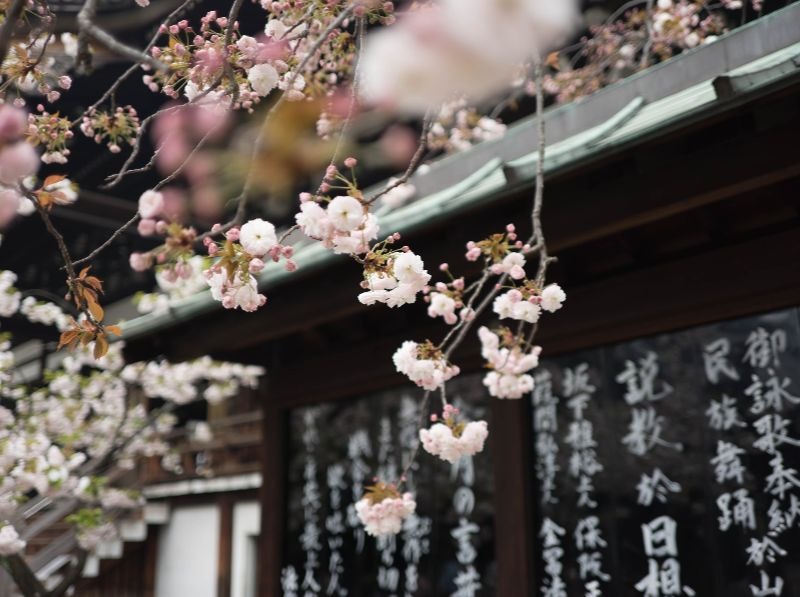
Is Japan Safe for Travel in 2024?
Generally, Japan is very safe place to visit. Below, we've detailed everything you need to know about safety in Japan, from the coronavirus to why it's a great destination for solo travelers.
Can I travel to Japan during COVID?
Japan has lifted its COVID-19 restrictions and is now safe for travel!
Here's the latest:
As of October 11, 2022 both vaccinated and unvaccinated travelers are permitted to travel to Japan for tourism .
Entry requirements:
- COVID-19 vaccine certificate for vaccinated travelers
- Negative PCR test taken within 72 hours before departure for unvaccinated travelers
- Masks are not required but are still commonly used.
Read on for more about staying safe in Japan.
Japan is one of the 10 safest countries in the world
According to the 2019 Global Peace Index , Japan is the 9th most peaceful country in the world. (The report makes its determination based on factors like crime rate, poverty, conflict, and incarceration, among others.)
As such, Japan is ahead of countries like Switzerland, Ireland, and Finland!
Solo female travelers love Japan
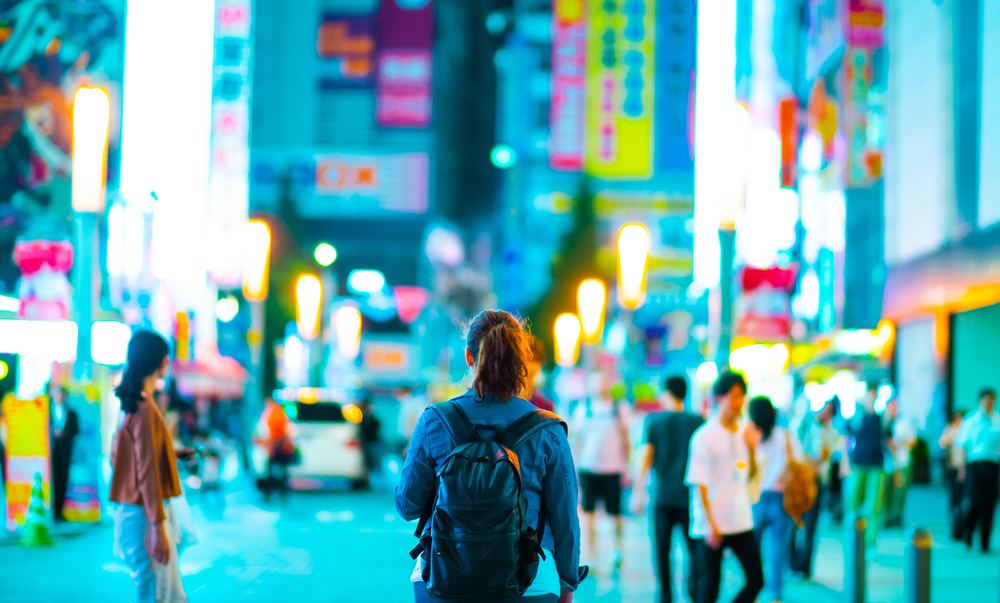
On the whole, the Japanese people are kind, courteous, and respectful, making Japan a must-go for female travelers.
Plus, locals tell us that some hotels even offer women-only accommodations for an extra sense of security, and many trains have women-only cars.
The crime rate in Japan is low
There are pickpockets all over the world, but locals say that even in big cities like Tokyo or Kyoto, there just aren’t very many.
The same goes for violence— crime is basically nonexistent in Japan . Basically, you can go anywhere in Japan without fear.
The Fukushima disaster is completely contained
Since a 2011 tsunami destroyed the Fukushima nuclear power station , Japan has entirely contained the contaminated area and has removed the radioactive debris with record speed.
So whether you’re traveling all over Japan or just staying in Tokyo , you’re totally fine!
Japan is prepared for natural disasters
While there’s always a risk of earthquakes in Japan, it’s no larger than the risk in San Francisco. Additionally, locals tell us that Japan takes natural disaster preparation very seriously . Our trip planners gave us these earthquake tips:
- While earthquakes are sudden, there are apps you can download that will notify you of an oncoming quake’s location and intensity.
- Know the basics: take shelter under something sturdy—like a desk or a table—and wait for the shaking to stop.
Emergency numbers everyone should know
Be prepared! Locals say these are good numbers to know:
- Police: 110
- Fire, ambulance, and emergency rescue: 119
- U.S. Embassy (Tokyo): +81 3-3224-5000
No matter where you visit in Japan, you'll find tons of must-do activities. And you don't want to worry too much about safety while enjoying all that Japan has to offer!
Travel may be unsafe at the moment, but you can still start planning for future adventures.
Leave a comment:

Select Account Type
Sign-up with
Almost there!
Find booking.
How should we contact you?
Thank you! We'll get back to you as soon as possible!
Click here to register and track your question!
If you would like to follow up with us:
+1 (855) 782-3006
Forgot your password?
Enter your email address below and we'll send you a reset link:
We've detected unusual activity from your computer network
To continue, please click the box below to let us know you're not a robot.
Why did this happen?
Please make sure your browser supports JavaScript and cookies and that you are not blocking them from loading. For more information you can review our Terms of Service and Cookie Policy .
For inquiries related to this message please contact our support team and provide the reference ID below.
We use cookies on this site to enhance your user experience. If you continue to browse you accept the use of cookies on our site. See our Cookie Policy for more information.
- Media & PR
- Meetings & Events
- School Groups
- Travel Trade
- Select Language 简体中文 繁體中文(香港) 繁體中文(臺灣) India (English) Bahasa Indonesia 한국어 ภาษาไทย Tiếng Việt Singapore (English) Philippines (English) Malaysia (English) Australia/New Zealand (English) Français Deutsch Italiano Español United Kingdom (English) Nordic countries(English) Canada (English) Canada (Français) United States (English) Mexico (español) Português العربية Japan(日本語) Global (English)
- India (English)
- Bahasa Indonesia
- Singapore (English)
- Philippines (English)
- Malaysia (English)
- Australia/New Zealand (English)
- United Kingdom (English)
- Nordic countries(English)
- Canada (English)
- Canada (Français)
- United States (English)
- Mexico (español)
- Global (English)
- Fujiyoshida
- Shimonoseki
- Ishigaki Island
- Miyako Island
- Kerama Island
- Tokyo Island
- Koka & Shigaraki
- Hida Takayama
- Ginza, Nihonbashi
- Beppu & Yufuin (Onsen)
- Ginzan Onsen
- Nagasaki Islands

- Kumano Kodo
- Shikoku Karst
- Amami Oshima
- Hachimantai
- Omihachiman
- Aizuwakamatsu

- Diving in Japan
- Skiing in Japan
- Seasonal Flowers in Japan
- Sustainable Outdoors
- Off the Beaten Track in Japan
- Scenic Spots
- World Heritage
- Home Stays & Farm Stays

- Japanese Gardens
- Japanese Crafts
- Temple Stays
- Heritage Stays
- Festivals and Events
- Theater in Japan
- Japanese Tea Ceremony
- Cultural Experiences in Japan
- Culture in Japan

- Local Cuisine Eastern Japan
- Local Cuisine Western Japan
- Local Street Food
- Japan's Local Ekiben
- Japanese Whisky
- Vegetarian and Vegan Guide
- Sushi in Japan Guide
- Japanese Sake Breweries

- Art Museums
- Architecture
- Performing Arts
- Art Festivals
- Japanese Anime and Comics
- Japanese Ceramics
- Local Crafts

- Scenic Night Views
- Natural Wonders
- Theme Parks
- Samurai & Ninja
- Iconic Architecture

- Wellness Travel in Japan
- Japanese Ryokan Guide
- A Guide to Stargazing in Japan
- Relaxation in Japan
- Forest Bathing (Shinrin-yoku)

- Experiences in Japan
- Enjoy my Japan
- National Parks
- Japan's Local Treasures
- Japan Heritage
- Snow Like No Other
- Wonder Around Japan

- Visa Information
- Getting to Japan
- Airport Access
- COVID-19 Practical Information
- Anime Tourism
- Countryside Stays
- Sustainable Travel
Accommodation
- Sample Itineraries
- Travel Agents
- Deals and Tours

- Traveling by Rail
- How to Travel by Train and Bus
- JR Rail Passes
- Train Passes and Discounted Tickets
- Scenic Railways
- Renting a Car
- Yokohama Cruise Port Access
- Travel Brochures
- Useful Apps
- Accommodation Types
- Online Reservation Sites
- Eco-friendly Accommodation
- Luxury Accommodations
- Traveling With a Disability
- Hands-free Travel
- How to Book a Certified Tour Guide
- Volunteer Guides
- Tourist Information Center

- Japanese Manners
- Sustainable Travel in Japan
- Spring in Japan
- Summer in Japan
- Autumn in Japan
- Winter in Japan
- Seasonal Attractions
- Monthly Events Calendar
- Cherry Blossom Forecast
- Autumn Leaves Forecast

- Japan Visitor Hotline
- Travel Insurance in Japan
- Japan Safe Travel Information
- Accessibility in Japan
- Vegetarian Guide
- Muslim Travelers
- Safety Tips

- All News & Blog
- Travellers Blog
- Guides to Japan
- Stories of Japan
- The Other Side of Japan
- Media Releases
- JAPAN Monthly Web Magazine

My Favorites
${v.desc | trunc(25)}
Planning a Trip to Japan?
Share your travel photos with us by hashtagging your images with #visitjapanjp
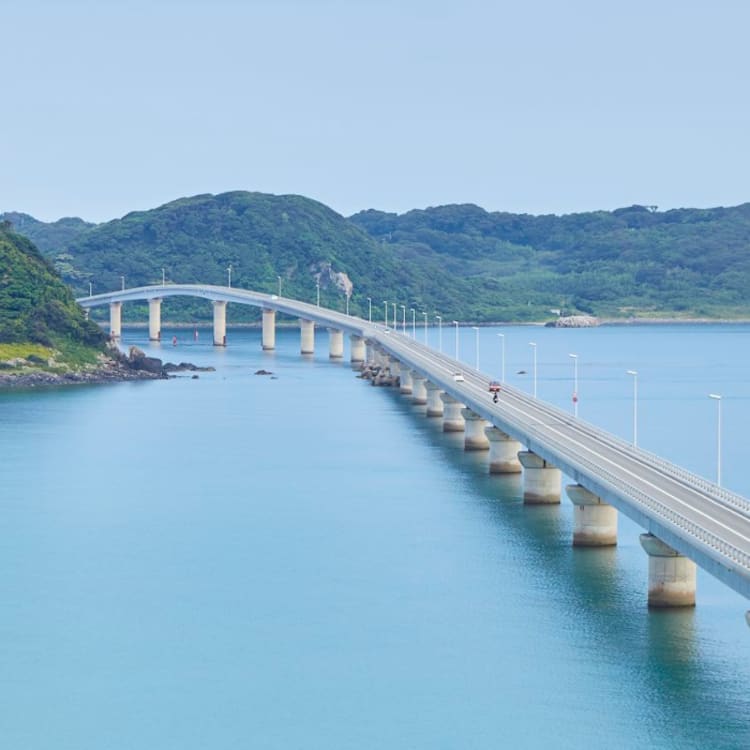
COVID-19 Health & Safety Information
Please note this page is no longer being updated..
For the latest information on entry to Japan, please visit the following page: COVID-19: Practical Information for Traveling to Japan
Information on the easing of travel restrictions to Japan (as of 11 November 2022)
*For passport holders from other countries, please see the links below for the Embassies and Consulates-General of Japan for more information.
PCR tests or quarantine on arrival are not required, regardless of vaccination status. For more information on the process and entry requirements, refer to the below image or visit this page to view the information in checklist form.
Process Map
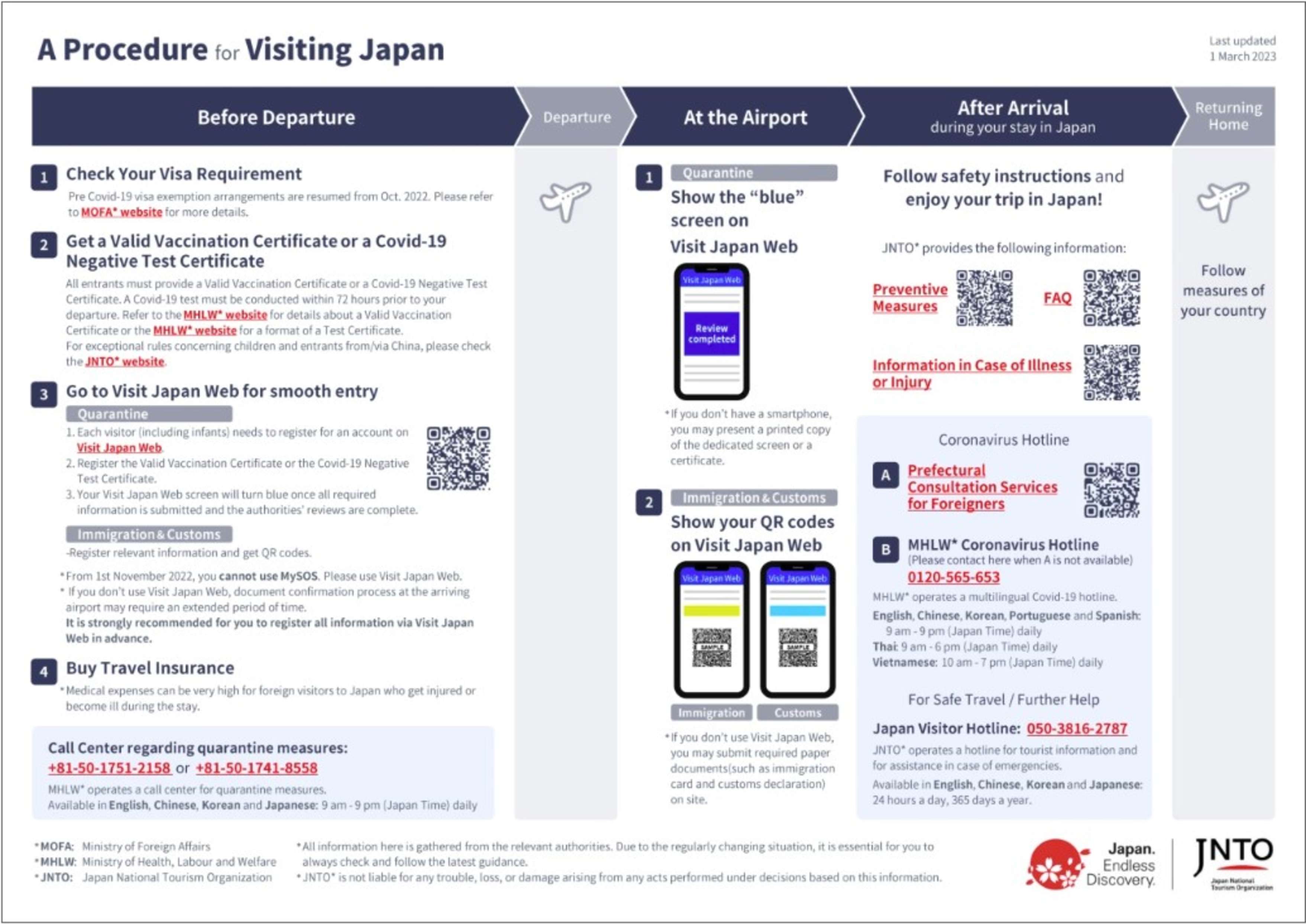
Useful Resources
Au / nz government travel advisories , visit japan / jnto sites .
The Coronavirus travel restrictions page is a travel advisory updated regularly in line with the official information provided by the Government of Japan.
COVID-19: Practical Information for Traveling to Japan is an information page built to help travellers plan a safe trip around Japan.
See specific measures taken by Japanese organisations below.

Airlines & Airports
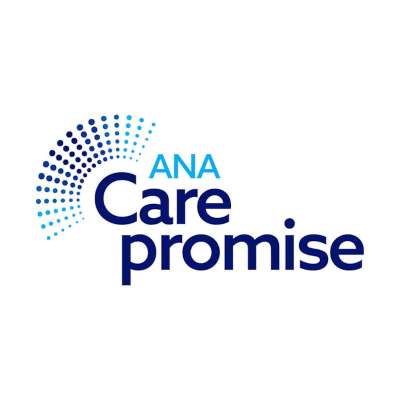
The ANA Care Promise set of health and safety initiatives has been awarded a 5-Star COVID-19 Safety Rating from SKYTRAX, the highest possible rating, and one that only a few airlines worldwide has achieved.
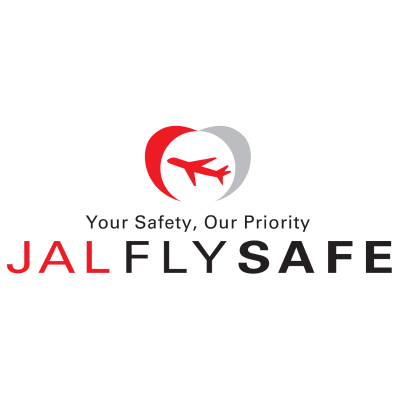
The JAL FlySafe set of health and safety initiatives has been recognised by Skytrax with a 5-Star COVID-19 Airline Safety Rating, along with a Diamond Certification by APEX Health Safety powered by SimpliFlying.
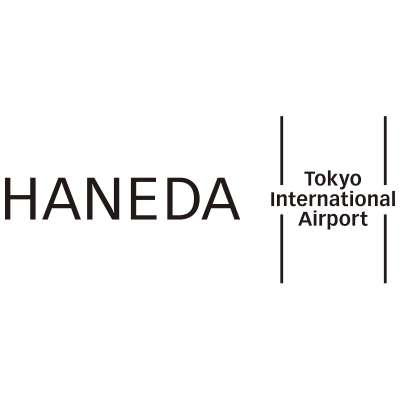
Haneda Airport’s webpage includes information on how to use airport facilities safely and measures to prevent the spread of infection, especially in regards to the 3 Cs: closed spaces, crowded spaces, close-contact settings.

Narita Airport has implemented nine key initiatives to prevent the spread of infection including the installation of transparent barriers, ensuring optimum air ventilation and stringent cleaning practices.
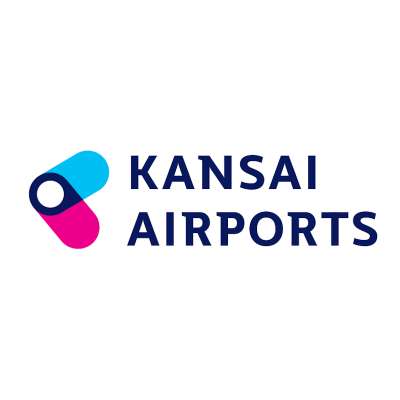
Kansai International Airport has a number initiatives in place to prevent the spread of infection including the use of thermographic cameras, increased cleaning and disinfection of surfaces and social distancing measures.

Railway Companies
Japan has an expansive railway network that is owned and operated by many companies. Japan Railways (JR) is the most well-known thanks to the popular JR Pass and high-speed shinkansen (bullet trains). Its vast and elaborate network can be a bit daunting to navigate at first - it's actually operated by six separate companies: JR Hokkaido, JR East, JR Central, JR West, JR Shikoku, JR Kyushu.
In particular, please note the popular Tokaido-Sanyo Shinkansen (Tokyo to Hakata) is run by both JR Central and JR West – JR Central operates the section from Tokyo to Osaka, and JR West operates the section from Osaka and Hakata.

JR Hokkaido services the northern island of Hokkaido and also operates the section of the shinkansen route between Shin-Aomori Station on Honshu and Shin-Hakodate-Hokuto Station in southern Hokkaido. Download the ‘Major actions on preventing the spread of novel coronavirus’ PDF from their website for more information.

JR East services eastern Japan including the capital of Tokyo and the north-eastern region of Tohoku. It also operates the Hokuriku Shinkansen which stops at cities such as Nagano, Kanazawa and Niigata.

JR Central services central Japan and operates the Tokaido Shinkansen, a popular route that runs between Tokyo and Osaka travels through major cities such as Yokohama, Nagoya and Kyoto. The ‘COVID-19 Protective Measures’ PDF is available to download from their website.

JR West services western Japan, including well-known cities such as Nara, Osaka, Kyoto, Wakayama, Kobe and Hiroshima. It operates the Sanyo Shinkansen which runs from Shin-Osaka Station to Hakata Station in Fukuoka Prefecture on the southern island of Kyushu.

Tobu services the area of Tokyo and surrounds, providing connections to popular destinations such as Nikko, Asakusa, Tokyo Skytree and Kawagoe. Information on the latest measures to prevent the spread of infection is available to download from their website.

Kintetsu Railway services the areas of Osaka, Kyoto, Nara, Ise-shima (Mie Prefecture) and Nagoya. As part of a number of measures implemented to prevent the spread of infection, Kintestsu has sprayed the interior of its train carriages with an antiviral and antibacterial treatment.

Nankai Electric Railway services southern Osaka Prefecture and Wakayama Prefecture. It connects the southern hub of Namba to Kansai International Airport, Wakayama and Koyasan. Information on health and safety measures that have been implemented is available to download from their website.

JR-West Hotels have implemented new 'Clean & Safety' hygiene standards, and have received the coveted Trusted Cleanliness Badge, a certificate issued by Trust You, one of the top class platforms in the hotel industry. (JR-West Hotels brands include Hotel Granvia, Hotel Vischio by Granvia, Nara Hotel and Potel.)

Prince Hotels has developed the Prince Safety Commitment, a set of new protocols for hygiene and disinfection to be applied to all the hotels under their brands. These will enable Prince Hotels to provide guests with a safe and clean environment during their stay.

Palace Hotel Tokyo has achieved the GBAC STAR™ Facility Accreditation and has become Sharecare Health Security VERIFIED™ with Forbes Travel Guide. These accreditations show Palace Hotel Tokyo is committed to implementing best practices and operating as safely as possible.

Imperial Hotel Osaka has received GBAC STAR™ accreditation and is Sharecare Health Security VERIFIED™ with Forbes Travel Guide. These demonstrate the hotel meets international hygiene standards for infectious disease prevention measures and is committed to following best practices to ensure the safety and comfort of its guests.

Destinations

Miyazaki Prefecture Tourism Association has produced a video to introduce the safety measures taken by the Miyazaki Tourism Industry for the post-COVID-19 era.

Attractions

Read about the health and safety measures that are in place at Tokyo Disneyland and Tokyo DisneySea as well as update on the status of rides, attractions, restaurants and other facilities at each theme park.
- JNTO Sydney
- COVID-19 Health & Safety Information
Please Choose Your Language
Browse the JNTO site in one of multiple languages
England gives Sunak hope of glorious comeback; Reform candidate disowns party amid racism row
After England's glorious last-minute comeback - Rishi Sunak has sent a message to the country as he tries to snatch victory from the jaws of defeat in this general election.
Monday 1 July 2024 05:51, UK
- General Election 2024
Please use Chrome browser for a more accessible video player
- England gives Sunak hope of a glorious comeback
- Reform candidate disowns party amid racism row - and backs Tories | Which comes after party dropped three candidates
- Farage says he 'doesn't want to know' racists | And finally rules out joining Tory party after election
- Rob Powell: With more coverage comes more scrutiny
- Sunak insists he can still win election
- Has Labour chosen wealthy pensioners over children in poverty?
- 'Extremely troubling' footage emerges of Tory association students singing Nazi song | But party says group 'not affiliated' to them
- Live reporting by Ben Bloch and (earlier) Faith Ridler
Election essentials
- Manifesto pledges: Conservatives | Greens | Labour | Lib Dems | Plaid | Reform | SNP
- Trackers: Who's leading polls? | Is PM keeping promises?
- Campaign Heritage: Memorable moments from elections gone by
- Follow Sky's politics podcasts: Electoral Dysfunction | Politics At Jack And Sam's
- Read more: Who is standing down? | Key seats to watch | What counts as voter ID? | Check if your constituency is changing | Guide to election lingo
- How to watch election on Sky News
Thank you for joining us on the Politics Hub for live coverage of events on the general election campaign trail today.
Polls open in 3 days and 8 hours - and the campaign is about to enter a frantic phase as politicians spend every last moment fighting for your vote.
Scroll down for all of today's developments - and we'll be back from 6am with the very latest.
Pledges and promises are coming thick and fast from every party as the general election approaches.
Struggling to keep up with who is saying what?
Here is a summary of where the main parties stand on major issues.
For a more in-depth look at what each party has pledged, scour our manifesto checker ...
The final weekend of the general election campaign is over, with three days and nine hours left until polls open.
Today has seen a slight lull in the pace of campaigning ahead of the frantic final days as the politicians fight for every last vote.
Here's what you need to know about what happened today:
- Nigel Farage held a vast Reform UK rally in Birmingham as he tries to stabilise his party's position after a slew of racism allegations this week;
- Speaking to Sky's political editor Beth Rigby , Mr Farage described homophobic remarks by a close aide of his as "crass, drunken, vulgar, rude, wrong" - but also that "people say all sorts of things when they're drunk";
- Also in his interview with Beth, he finally ruled out joining the Tories after the election if he enters parliament, saying they are "ghastly";
- But the racism row engulfing the party continued, with one of his candidates quitting to back the Tories, citing "widespread racism and sexism" in the party, and "the failure of the party's leadership to not only take this matter seriously, but also to fundamentally address it".
- Rishi Sunak started the day with a tough interview in which he was challenged on his party's record in power;
- He insisted on BBC's Sunday with Laura Kuenssberg show that the UK is "a better place to live than it was in 2010", despite a "difficult" last few years;
- He also insisted that his party can still win the general election;
- In the afternoon, he visited a synagogue in north London and met community members;
- He pledged that a Conservative government under his leadership would show "steadfast" support for Israel, and said he was "proud" that British forces helped defend Israel from Iran's attack in April;
- The PM hit out at the "sickness" of antisemitism, and pledged to "lead a long term effort" to tackle, and "change our culture so we tackle the root causes of this hatred";
- Speaking to Sky's Trevor Phillips this morning, Mr Sunak's deputy, Oliver Dowden , warned that Russia is using bots to boost Reform UK on social media (a spokesman for the party said Mr Dowden must think voters are "stupid").
- Sir Keir Starmer was not seen on the campaign trail today, but his national campaign coordinator Pat McFadden was challenged by Sky's Trevor Phillips about whether they would owe a potential victory on Thursday to Reform UK;
- He replied that the power is in the hands of the electorate, and dismissed any questions over the legitimacy of a potential Labour win;
- SNP leader John Swinney told Sky News that Scots have been "disenfranchised" by the timing of the election, because school holidays in Scotland have already started in large parts of the country;
- The first minister also made the case for independence with the SNP - but did concede his party has had a "tough time" in recent months.
Follow along for the latest political updates throughout the evening.
TV presenter Rylan Clark has said he would "love" to become a politician - and replace the party system with a "Power Rangers of government" model.
The TV personality, 35, joined political editor Beth Rigby and former Scottish Conservative leader Baroness Ruth Davidson for this week's Sky News Electoral Dysfunction podcast.
Asked if he would ever consider the career change, he said: "If I wasn't in the job that I was in, I would love nothing more."
Rylan, who won Celebrity Big Brother and also appeared on the X Factor, appeared on the podcast in place of Labour candidate Jess Phillips after tweeting his praise for Rigby on the day Rishi Sunak announced the general election.
Sharing a clip of her and Sky presenter Sophy Ridge outside a rainy Downing Street waiting for Mr Sunak to appear at the lectern, he said: "Obsessed with the Rigby."
Speaking to her and Davidson, he said his "obsession" with politics began with Brexit - "as we've seen so many promises which weren't fulfilled" since then.
He added: "I lie there at night sometimes, and I think about [Volodymyr] Zelenskyy. He hosted one of the same shows I've hosted in Ukraine."
The TV presenter also shared his idea of abandoning political parties altogether.
Read the full story here:
Our live poll tracker collates the results of opinion surveys carried out by all the main polling organisations - and allows you to see how the political parties are performing in the run-up to the general election.
With under a week to go, the Tories and Labour have taken a drop, while support for Reform UK and the Liberal Democrats is on the rise.
Read more about the tracker here .
Avid football fan Sir Keir Starmer has tweeted his reaction to England's win over Slovakia to reach the quarter-finals of the Euros.
Although England came a matter of minutes from losing before Jude Bellingham's stunning overhead kick in added time took it to extra time, the Labour leader tweeted that the win was "never in doubt".
Labour would definitely want to steer us away from inferring any commentary about the general election from that tweet as they fight for every last vote - unlike Rishi Sunak's more pointed message ...
The Financial Times (FT) announced today that it is backing the Labour Party at this general election, and on Politics Hub With Ali Fortescue , we spoke to the paper's Whitehall Editor, Lucy Fisher, about that decision.
She is, of course, employed by the paper as a journalist, and does not sit on the Editorial Board that decided the endorsement.
But she told Ali that it is "really significant" that the board has backed Labour, adding that it's "the first time since 2005" the paper has done so.
"The FT doesn't have a natural political allegiance, and in fact, being a very pro-free trade and private enterprise newspaper, wanting to see a very open, outward-looking Britain - [it] has more often supported the Tories than Labour.
"So it does feel significant. And the op-ed... makes clear the FT views this as a sea change moment in British politics akin to 1979 when [Margaret] Thatcher swept to power, or 1997 when Tony Blair came in."
Finally, we ask Treasury minister Bim Afolami if the Conservative Party can still defy the polls and win the election on Thursday.
He replies: "Of course we can. And, you know, we will see what happens
"But what I do know is on speaking to constituents... there are higher than normal numbers of undecided people.
"This is the fourth general election I've fought - a large number of people are still saying they don't know which way to go.
"And my message to them on the doorsteps and here today is if they want to lower their taxes, secure the borders, make sure that we have a thriving, prosperous economy going forward in the future, a Conservative vote is what they need to do."
Ali Fortescue points out to the minister that the overall tax burden will continue to rise under the Conservative Party - but he does not accept that, saying the tax cuts they want to make are targeted at ordinary working people, and the overall number factors in the wider economy.
"We are cutting taxes for working people and for pensioners as well," he insists.
In the last hour, we've had the breaking news from the French parliamentary elections that Marine Le Pen's far right National Rally party appears to have come out on top in the first round of voting, according to exit polls.
We ask minister Bim Afolami if he is worried about that at all, and he replies: "I must confess that I haven't really been following the French election as closely as I might have done because I've been focusing on my own in this country."
Asked if a Conservative government would work with Ms Le Pen and her party, he replies that "Britain has to work with whoever is chosen as the leader of other countries".
He says "of course" they would work with whoever is elected in France.
Sky's Ali Fortescue puts it to him that Rishi Sunak has previously said Nigel Farage would work with Ms Le Pen, implying it would be a bad thing to do.
Mr Afolami replies: "We're not advocating for Marine Le Pen to win.
"What I'm saying to you is you cannot choose... who leads other countries."
The first UK political guest on tonight's edition of Politics Hub With Ali Fortesue is Treasury minister Bim Afolami, and we start by asking for his reaction to the Reform candidate in Erewash disowning his party to back the Tories.
Mr Afolami says: "Well, I'm glad he's seen the light."
He also says that he's glad that the candidate, Liam Booth-Isherwood, has made the point that only the Conservative candidate can stop Labour winning, which has been the Tory party's argument for weeks.
Asked if he would be glad if Nigel Farage decided to back the Tories, Mr Afolami says the Reform leader has "no intention" of switching sides.
He goes on: "I do find it quite curious, you know, this idea that Farage is somehow a Conservative. He spent 25 years trying to destroy the Conservative Party."
He adds that Reform is "designed to increase the power of a Labour".
Challenged on the fact that senior Conservatives like Suella Braverman and Sir Philip Davies have said they would welcome Mr Farage into the party, the minister says they are "in a small minority".
Here is the full list of candidates standing in Erewash:
- James Martin Archer, Liberal Democrats
- Liam Dane Booth-Isherwood (was Reform UK, but has quit party to back Tories)
- John William Kirby, Independent
- Brent Poland, Green Party
- Adam Thompson, Labour Party
- Maggie Throup, Conservative Party
Be the first to get Breaking News
Install the Sky News app for free


IMAGES
COMMENTS
Last updated: Wednesday, May 31st, 2023. Get ready for your dream trip to Japan! Japan is now open to travelers from all countries or regions! Those who enter Japan on or after April 29th 2023 are not be required to present a valid vaccination certificate or a Covid-19 negative test certificate.
Travelers who are unsure of their eligibility to travel to Japan should contact the nearest Japanese embassy or consulate for additional information. Effective as of midnight April 29, 2023 (Japan time), all travelers arriving in Japan will no longer need to present proof of vaccination or a negative Covid-19 test certificate.
9. Visit Japan Web. Visit Japan Web is a convenient way to register information for quarantine, immigration and customs procedures before you enter Japan. You can upload an electronic certificate of a negative COVID-19 test result for a test conducted within 72 hours of travel, and generate a QR code. The service is available in English and ...
[ANA Official Website] You may be required to present a negative PCR test certificate upon entering any country or region. Get information on medical facilities offering PCR tests for customers traveling internationally from Japan. Information about preparing for travel. Plan for your travel with ANA Website.
COVID-19 test resultbefore boarding. Pre-registration of Visit Japan Web is required in order to enter Japan. Please click herefor details. Within 72 hours prior to departure Required to present upon entry into Japan Prepare a valid test certificate. *Only for travelers who cannot present a valid COVID-19 vaccination certificate.
For questions regarding the government of Japan's travel restrictions, the Ministry of Foreign Affairs provides contact information in Section Five of this website . Follow us on Twitter and Facebook . Assistance: U.S. Embassy Tokyo. Telephone: 03-3224-5000, After-Hours: 03-3224-5000. Email: [email protected].
Information about entering into Japan. New entry of foreign nationals Visa exemption arrangements have been resumed from 0:00 am (JST) on October 11, 2022. ... All travelers and returnees will no longer be required to submit either a certificate of negative result of COVID-19 test conducted within 72 hours prior to departure, or a valid COVID ...
1. Border Measures. Vaccination certificates and pre-departure tests are no longer required to enter Japan. Travelers and returnees with COVID-19 symptoms will no longer be subjected to on-arrival testing. Travelers with a positive COVID-19 test result will not be treated at designated facilities.
CDC recommends that travelers avoid all nonessential travel to Japan. Widespread ongoing transmission of a respiratory illness caused by a novel (new) coronavirus (COVID-19) has been reported in Japan. Widespread ongoing transmission means that people have been infected with the virus, but how or where they became infected is not known, and ...
The basics. It's official: Japan will reopen to tourism on October 11. Ad Feedback. Prime Minister Fumio Kishida announced the news in September at a press conference. "We will lift the ...
To be considered vaccinated travelers must have at least 3 doses of the COVID-19 vaccine. Beginning in September, Japan will no longer require vaccinated passengers to take a COVID-19 test before ...
Notice: All border measures to prevent the spread of COVID-19 were lifted on April 29th, 2023. Those who enter Japan on or after April 29th, 2023, are not be required to present a valid vaccination certificate or a COVID-19 negative test certificate.
COVID-19 vaccination certificates issued in Japan which fall under any of the categories (1)-(3) below, and prove that at least three doses of COVID-19 vaccine are inoculated. (1) COVID-19 vaccination certificates issued by either the Government of Japan or a local public authority/municipality in Japan (The COVID-19 Vaccination Certificate for ...
Mita Kokusai Building Clinic. This clinic provides travel assistance to more than 170 countries worldwide and is accredited by embassies including those for Hawaii and China. It provides reliable pre-travel testing for your peace of mind, and also caters for infants, English speakers, and groups. The clinic is open on Saturdays (in the morning).
Routine services are provided by appointment only. U.S. Consulate Nagoya Nagoya International Center Bldg. 6th floor, 1-47-1 Nagono, Nakamura-ku, Nagoya 450-0001, Japan Telephone: 81-52-581-4501 Emergency After-Hours Telephone: 81-3-3224-5000 Fax: 81-52-581-3190 Our Navigator Assistant will guide you to the information you need.
The government is currently encouraging people with COVID-like symptoms to use self-test kits and register their results with municipal governments online. quality journalism is more crucial than ...
COVID-19: All eligible travelers should be up to date with their COVID-19 vaccines. Please see Your COVID-19 Vaccination for more information. COVID-19 vaccine. ... Use the Healthy Travel Packing List for Japan for a list of health-related items to consider packing for your trip. Talk to your doctor about which items are most important for you.
Do I need to do a pre-departure Covid test? From 07 September 2022, triple vaccinated visitors did not need to do a pre-departure test. Since 29 April 2023, all visitors can travel to Japan regardless of vaccination status, as vaccination proof and pre-departure tests are no longer required.
For Travelers. Information in case of illness or injury. Official announcements from the Government of Japan. Answers to your questions about traveling to Japan and staying safe during COVID-19, including where to get help if you need it.
FCDO travel advice for Japan. Includes safety and security, insurance, entry requirements and legal differences. ... COVID-19 rules. There are no COVID-19 testing or vaccination requirements for ...
Notice: All border measures to prevent the spread of COVID-19 were lifted on April 29th, 2023. Those who are entering Japan on or after April 29th, 2023, are not be required to present a Valid Vaccination Certificate or a Covid-19 Negative Test Certificate.
All COVID travel requirements for Japan have been lifted. Proof of vaccination or testing is no longer required. Official Travel to Japan: ***Update for travel to Japan as of 12-OCT-22***. DoD Civilians and Eligible Family Members on official travel are required to have a Special Issuance Passport (SIP) After applying for an Official Passport ...
Generally, Japan is very safe place to visit. Below, we've detailed everything you need to know about safety in Japan, from the coronavirus to why it's a great destination for solo travelers.Can I travel to Japan during COVID?Japan has lifted its COVID-19 restrictions and is now safe for travel!Here's the latest: As of October 11, 2022 both vaccinated and unvaccinated travelers are permitted ...
Why It Feels Like Everyone in the World Is Heading to Japan Right Now. Cheap yen, global travel recovery spark historic tourism boom; Japan forecast to receive 34 million visitors in 2024
The Coronavirus travel restrictions page is a travel advisory updated regularly in line with the official information provided by the Government of Japan. COVID-19: Practical Information for Traveling to Japan is an information page built to help travellers plan a safe trip around Japan. See specific measures taken by Japanese organisations below.
Sir Elton John endorsed the Labour Party and Sir Keir Starmer in a video message at a major Labour campaign rally in London. Meanwhile, Rishi Sunak was mobbed by worshippers at a temple in London.